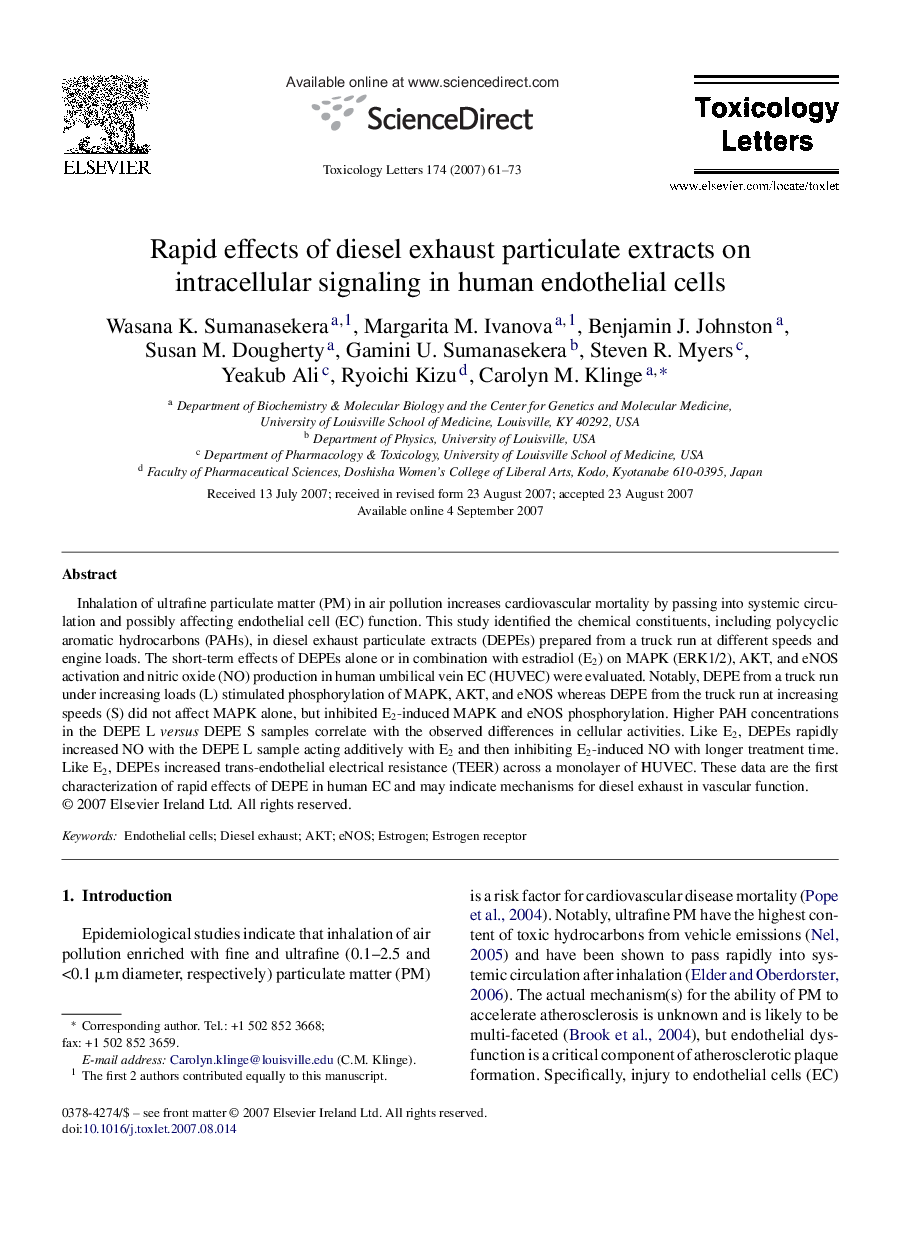| Article ID | Journal | Published Year | Pages | File Type |
|---|---|---|---|---|
| 2601834 | Toxicology Letters | 2007 | 13 Pages |
Abstract
Inhalation of ultrafine particulate matter (PM) in air pollution increases cardiovascular mortality by passing into systemic circulation and possibly affecting endothelial cell (EC) function. This study identified the chemical constituents, including polycyclic aromatic hydrocarbons (PAHs), in diesel exhaust particulate extracts (DEPEs) prepared from a truck run at different speeds and engine loads. The short-term effects of DEPEs alone or in combination with estradiol (E2) on MAPK (ERK1/2), AKT, and eNOS activation and nitric oxide (NO) production in human umbilical vein EC (HUVEC) were evaluated. Notably, DEPE from a truck run under increasing loads (L) stimulated phosphorylation of MAPK, AKT, and eNOS whereas DEPE from the truck run at increasing speeds (S) did not affect MAPK alone, but inhibited E2-induced MAPK and eNOS phosphorylation. Higher PAH concentrations in the DEPE L versus DEPE S samples correlate with the observed differences in cellular activities. Like E2, DEPEs rapidly increased NO with the DEPE L sample acting additively with E2 and then inhibiting E2-induced NO with longer treatment time. Like E2, DEPEs increased trans-endothelial electrical resistance (TEER) across a monolayer of HUVEC. These data are the first characterization of rapid effects of DEPE in human EC and may indicate mechanisms for diesel exhaust in vascular function.
Related Topics
Life Sciences
Environmental Science
Health, Toxicology and Mutagenesis
Authors
Wasana K. Sumanasekera, Margarita M. Ivanova, Benjamin J. Johnston, Susan M. Dougherty, Gamini U. Sumanasekera, Steven R. Myers, Yeakub Ali, Ryoichi Kizu, Carolyn M. Klinge,
